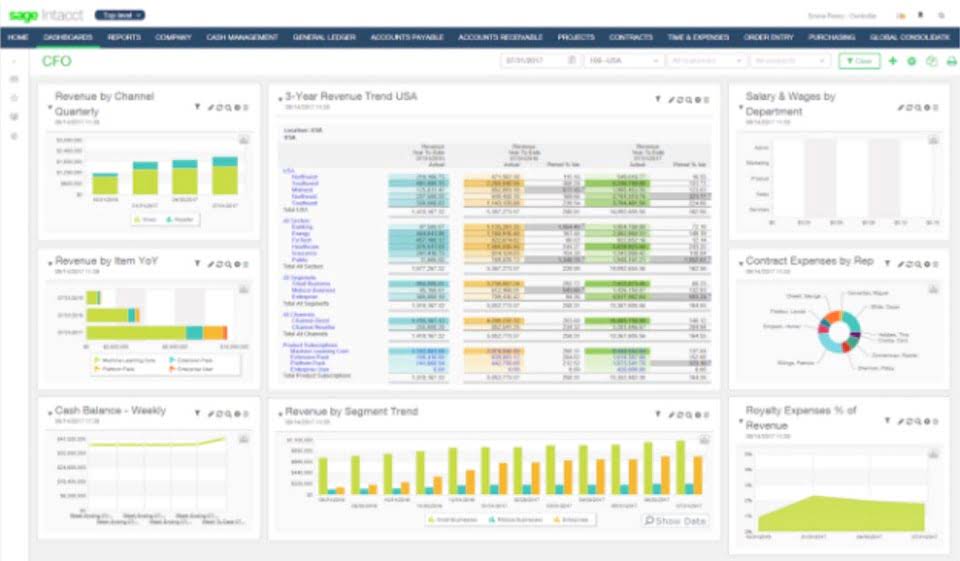
It must be a skill learned by those preparing the organization’s financial reports, as negative repercussions can occur if they are not placed in the right accounts. Revenue has tax obligations, whereas the unearned amount doesn’t. In conclusion, organizations must comprehend unearned revenue in order to properly manage their finances. Unearned revenue plays a pivotal unearned revenue a liability role in cash management since it provides the organization with an inflow of cash that can be used for many activities. Because the membership entitles Sam to 12 months of gym use, you decide to recognize $200 of the deferred revenue every month—$2,400 divided by 12. Securities and Exchange Commission (SEC) that a public company must meet to recognize revenue.
- A business generates unearned revenue when a customer pays for a good or service that has yet to be provided.
- Note that when the delivery of goods or services is complete, the revenue recognized previously as a liability is recorded as revenue (i.e., the unearned revenue is then earned).
- You’ll see an example of the two journal entries your business will need to create below when recording unearned revenue.
- In other words, the payment received is for goods or services that will be delivered at some point in the future.
- This time, the company will debit the unearned revenue account and credit the service revenues account for the corresponding amount.
- In conclusion, the proper accounting treatment of unearned revenue is necessary for accurate representation of a company’s financial health.
Accounting Solutions: The Top 7 Ways to Get Your Accounting Done
Some of the examples include prepaid rents, insurance, airline tickets, and annual software subscriptions. When the goods and services are supplied/rendered, the liability is transitioned into revenue on the income of the organization. Since you haven’t delivered on all the website support throughout the year yet, you should classify the support fee separately in your contract, and only recognize that revenue as you earn it. These rules can get complicated—and to top it off, the Financial Accounting Standards Board (FASB) recently overhauled them. For a detailed rundown of how to recognize revenue under the new GAAP rules, check out our guide to revenue recognition.
Financial Analysis and Transparency
For example, you can use it to set standard controls, rules, and methods to recognize revenue in a particular way. You can also use it to sort and analyze revenue received by criteria or automate amortization schedules. Unearned revenue arises when customers prepay for products or services before the company has fulfilled its obligations. Common examples include subscription-based services, prepaid insurance policies, and advance ticket sales. As the company delivers the goods or services over time, it gradually recognizes the unearned revenue as earned revenue on the income statement. When you receive unearned revenue, it means you have taken up front or pre-payments before the actual delivery of products or services, making it a liability.

Deferred Revenues vs. Deferred Expenses
Carefully manage the cash flow generated from unearned revenue, as it can be tempting to use these funds for other purposes. Create a plan for allocating the cash received from unearned revenue to ensure that sufficient resources are available to fulfill customer obligations and cover any related expenses. However, each accounting period, you will transfer part of the unearned revenue account into the revenue account as you fulfill that part of the contract. These adjustments and corrections help ensure that financial statements of a business accurately reflect its revenue and liabilities. Regularly reviewing and adjusting for unearned revenue allows for better financial decision-making and reporting.
Create a free account to unlock this Template
Operating liabilities are amounts owed resulting from a company’s normal operations, whereas non-operating liabilities are amounts owed for things not related to a company’s operations. For example, mortgage and rent payments are non-operating liabilities. https://www.bookstime.com/ Deferred revenue is revenue recorded for services or goods that are part of its operations; therefore, deferred revenue is an operating liability. A client purchases a package of 20 person training sessions for $2000, or $100 per session.
- It is important to perform these adjusting entries to recognize deferred revenue according to the contract set in place.
- When you receive unearned revenue, you will record it on your business balance sheet first and then make the journal entry.
- On the other hand, the buyer can also cancel the order at any time.
- Media companies like magazine publishers often generate unearned revenue as a result of their business models.
- For this reason, the revenue is considered “unearned” and is recorded as a liability in the books.
Income Statement Correlations

In these situations, the unearned revenue will show up on the balance sheet as a long-term liability. Revenue is only reported when the service or good is provided, and the money is paid for. Revenue is only unearned when the customer pays the amount owed before the good or service is provided; when the opposite occurs, it is reported as accounts receivable. When unearned revenue is managed appropriately, accurate financial reporting and compliance with regulatory standards established by organizations such as the U.S. It is one of a few crucial accounting concepts where businesses receive the amount for goods and services that are yet to be provided. Unearned revenue is also referred to as deferred revenue and advance payments.
This will help ensure consistency and accuracy in managing unearned revenue across the organization. This is because according to the revenue recognition principle, revenue should be recognized in the same period in which goods or services are provided. However, since you have not yet earned the revenue, unearned revenue is shown as a liability to indicate that you still owe the client your services. Earned revenue means you have provided the goods or services and therefore have met your obligations in the purchase contract. By employing effective cash management strategies and robust risk assessment techniques, companies can navigate the intricacies of unearned revenue management. Adopting these practices will promote financial stability and growth while maintaining customer satisfaction and trust.
How does unearned revenue reflect in a company’s balance sheet?

In your accounting, you will schedule unearned revenue adjusting entries to match these dates. Scheduling these entries will organize and automate deferred revenue recognition. In accrual accounting, it is important to organize income properly, especially when it comes to prepaid services. Unearned revenue is a liability and is treated in a very unique way. A $2,000 credit would be recorded as unearned revenue on your balance sheet under current liabilities.



